“I’ve been working in reaction to what’s going on without quite experiencing it,” writes item idem (aka Cyril Duval) from his current base in Taipei. The French artist, designer and Shanzhai Biennial co-founder has been living outside of the pandemic epicenter, observing its effects from a comparatively safe distance. His recent ‘[BREAKING, broke, broken]’ collaborative video—produced with musician Dutch E Germ and premiering on AQNB today—offers sobering insight into the environmental crisis plaguing the world as we speak.
“While I’m in Taiwan, in some ways with this work I’m actually addressing something that is most relevant in the US—to American culture or western culture at large,” Duval says, about being sheltered from the worst of the Covid-19 pandemic, while starting the film during Taiwan’s initially strict and largely successful response to the public health emergency. “That’s slightly strange in a sense,” he says , about ‘[BREAKING, broke, broken]’ and its public service announcement advocating for radical societal solutions and switching perspective. “Would I have had the same point of view if I was going through it like most everyone I know? I’m curious about that.”
Through a montage of found television footage of climatological disaster, anti-capitalist cartoons and fear mongering mainstream news, an eerie AI- sounding narrator presses that individual and social wellbeing are all intrinsically linked to the environment. As an artist, item idem is no stranger to isolation as a therapeutic medium for creation. His work emerges from lockdown as a painstaking reminder of the most shockingly obvious truth.
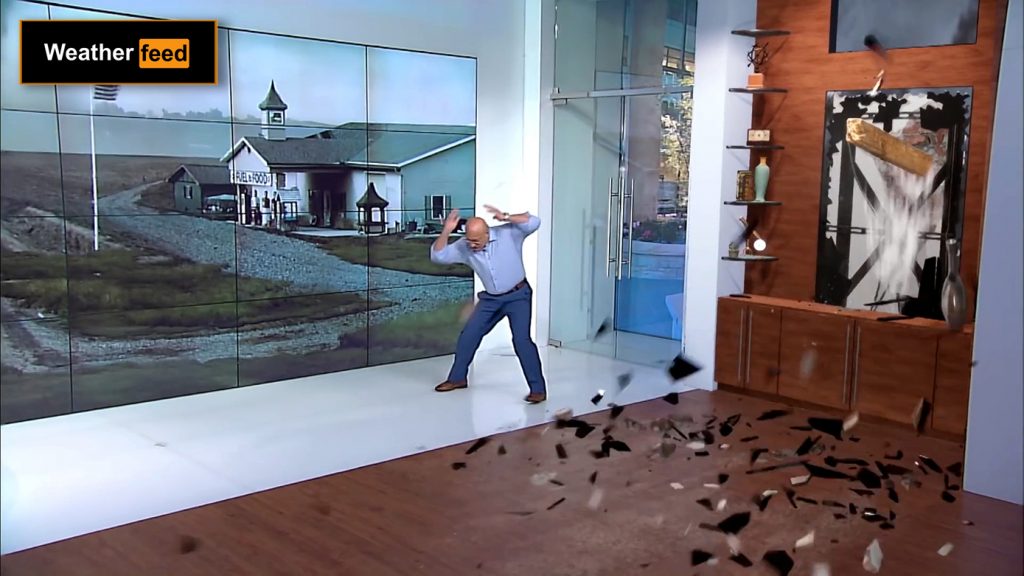
**Let’s first talk about the context of this work. You were recently based in the US, and then are in Taipei, Taiwan right now.
item idem: Covid-19 is not touching Asia in the way it’s touching the rest of the world. I don’t think Africa has been as touched by the pandemic in the same way that western societies and health care systems have been decimated. You would imagine that the so-called ‘third world’ would be the first to be extremely weakened, but that’s not the case. In many ways it’s a western affliction.
**Would you discuss the notion of hyperreality in this artwork in particular? It seems like we were already becoming immune to cable news-style ‘disaster porn’, but Covid-19 became ‘noticeable’ from the regularly scheduled crises through interrupting our ability to perpetuate our economic model.
ii: I don’t want people to be happy looking at this piece. It’s not a pleasurable message, even if there’s a lot of creativity, or different points of view that go into it. It isn’t engineered to be looked at with affection. Often my work is hyperreal in the sense that it doesn’t relate directly to reality—it’s a bridge to reality, but it doesn’t relate to moral values. That’s the best part of art, it doesn’t need to be real. Usually it’s better if it’s not too real.
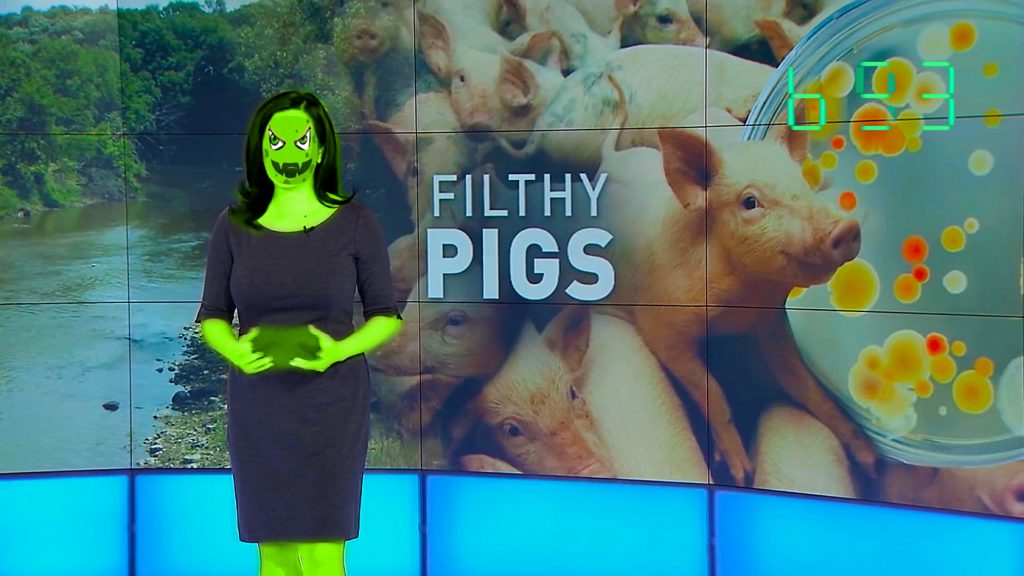
That’s not exactly the case with this work, which is closer to the reality that most of us share. It’s interesting—when was the last time we shared the same reality, all of us? Not that we ever actually share the same experience, of course. We have become very passive in the way we consume and relate to the news. It’s estranged. The way we consume objects is the same as the way we consume information, and we’re estranged from the reality of all of it.
It’s taken Covid-19 to persuade liberal people that it’s time to change our ways of thinking, particularly around the environment. Disaster porn is a TV genre, but it’s also the way we relate to the world. We are satisfied by an onslaught of the visual. The more you consume it, the more passive you become. People talk about how consuming too much pornography makes it harder to become aroused. You’re anesthetized by consumer culture and 24-hour news. There’s always breaking news, even if it’s to comment on the least important facts. The pandemic now is news that’s never ending, but it pushes people into looking at deeper issues. How much are we confronting issues like global warming, even when we are thinking about it? Now we’re rethinking public health care, nutrition, corporate governance. The idea of capitalism on pause is very seductive. We’re taking a breath. We’re taking time away from the logic of society.
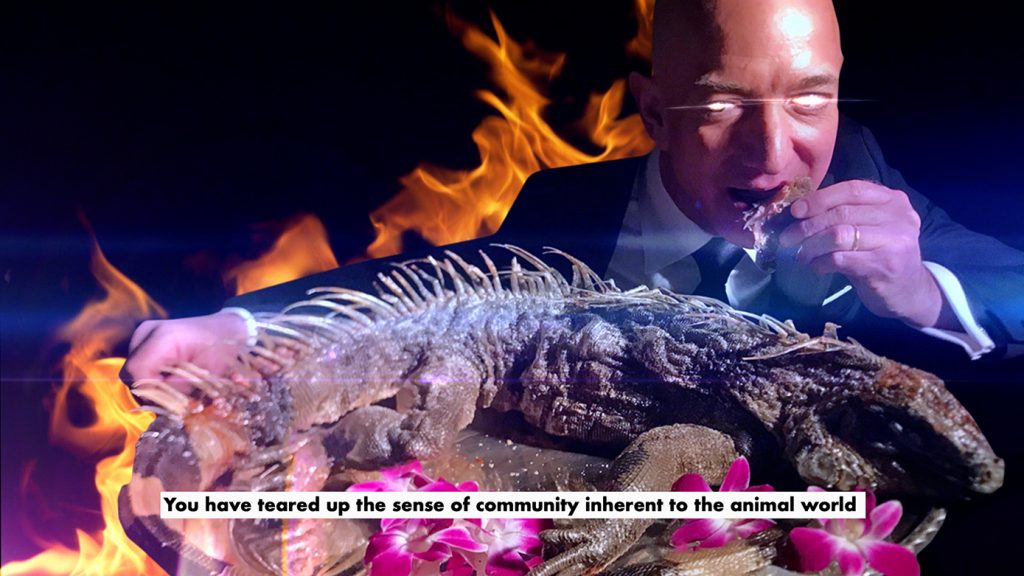
**Conspiracy theories have erupted throughout the Covid-19 crisis and 2020 American election. In this work, it seems like the character of Covid almost acts as a ‘mirror’ to our current moment, showing how global neoliberal capitalism has been a conspiracy of its own, enriching the few, impoverishing the many. Some people attribute the proliferation of conspiracy theories to a kind of denialism, unable to see the truth in front of their eyes of how our global economy ruins our health and our future. What is your take on this?
ii: There’s a way to look at the political system and always find mistakes or bias in every direction. People find comfort and solace in affirming their own beliefs. It feels like the world is ending, so people are finding ways to console themselves around whatever they already believe. Conspiracy theory is a way to keep people comforted by the status quo. The crazier the idea the more you keep people focused on not changing or looking too hard at reality. You’re creating fantasy to take away from reality. It’s a form of addiction, like porn, which is the quintessential form of social addiction.
For people who are seduced by conspiracy, if you believe in one, you probably move on to three or four, like the cascade of ‘Pizzagate’ and QAnon. It’s a form of indoctrination that takes you away from reality. It’s a way of raising belief when the 21st century lacks a shared reality, lacks ideals. Hence, populism and everything that comes out of it. It’s all part of this media culture which, in the US looks like such a violent disparity. American media culture is so liberal in the sense that it’s unshackled, an absolute range of free speech that makes it legal to spread lies. The violence of this ecosystem is one of the largest signs of the times, along with the fringe of the internet. Apps like Parlor, which is Twitter for people who want to speak into their own echo chamber of conspiracy. People who are in pain.
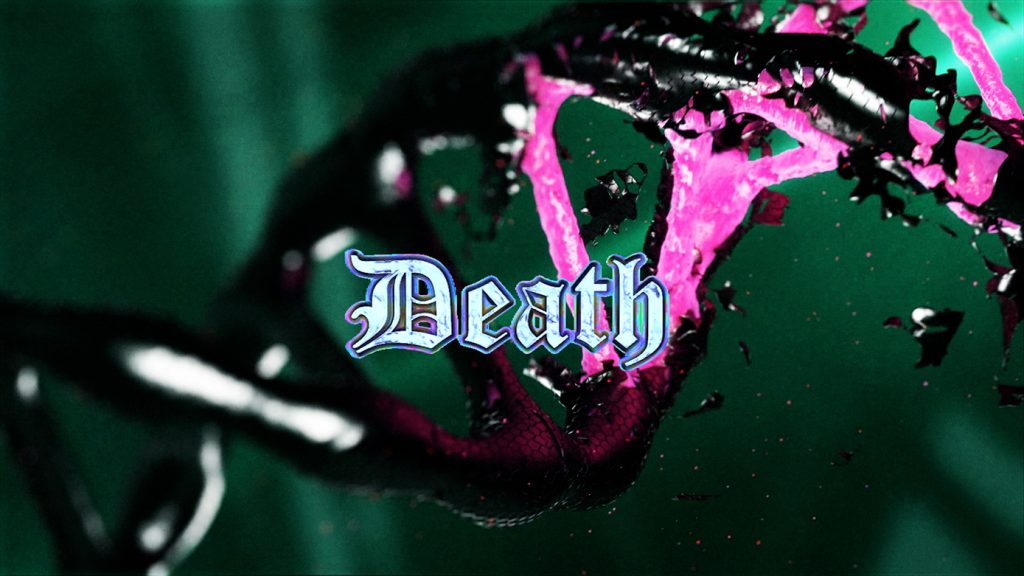
**Would you discuss your work with Dutch E Germ for this piece? To what degree did his music add a layering to the video work?
ii: Every piece that I do is always in collaboration with a musician, or really I would say another artist working on the score. I have too much respect for that genre. For me it’s impossible to create myself the same quality of sound design that I put into my image, so it’s really important to work with an artist who can craft an original narrative.
I always ask the question of how the score influences the video, and vice versa. When am I in the lead, and when does it turn around and influence me. It’s a very intricate collage. You can only do this with a very specific kind of person, and it’s a very specific kind of dialogue. There’s a lot of words exchanged to make this happen. I’ve spoken more with Tim [Dewitt] about this piece than anyone else in the world. How do you express the feeling in words, and how does he use my words to create sound? It’s a form of synesthesia. I really admire Tim, of course, for his career and practice. We live in a similar environment and have an ongoing creative relationship, so he was a natural fit to collaborate on the work.
**The format of the video piece is a PSA. There are also clear political and societal changes that you advocate at the end of this piece. It seems like your earlier work was more about consumer aesthetics and design, whereas there is now a tangible political aim. Do you feel like your work has become more political over time, or rather have the ‘mediums of communication’ become politicized?
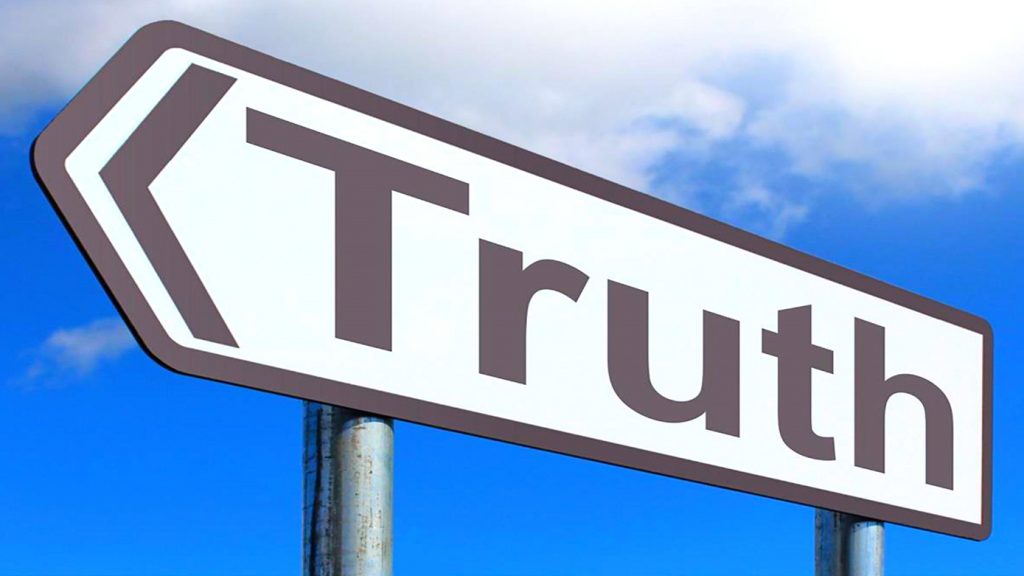
ii: It’s not quite the first time I’ve done a very earnest political piece. I did a piece around the beginning of the rise of Trump called ‘NUII‘. It was a very different aesthetic. It went mostly unnoticed, except for Dennis Cooper, who was one of the few people to pick it up and write about it. I perceive art as something that tries to affect society from an oblique angle. It should rarely go into a frontal perspective—art works in different ways. But sometimes, to my own surprise, I become more confrontational.
This piece is more of a PSA than a film. It’s an artist reacting to the time he lives in through the only thing he knows how to do. It use the tropes of political slogans and propaganda to do something. Hopefully, it’s theatrical enough to get around its directness. Good art has this human aspect that gives it a flow to get around the world on its own terms, whereas propaganda is engineered for a certain purpose of cultural dominance.
I think art should always be apart from politics, or find a fringe perspective from which to comment so people can craft their own point of view. This work is a very different, more confrontational, very blunt message. It stands apart from any other work I’ve done before or after. But I consider this a leap year, so it is what it is.**
item idem & Dutch E Germ’s ‘[BREAKING, broke, broken]’ premiered on AQNB on December 10, 2020.













